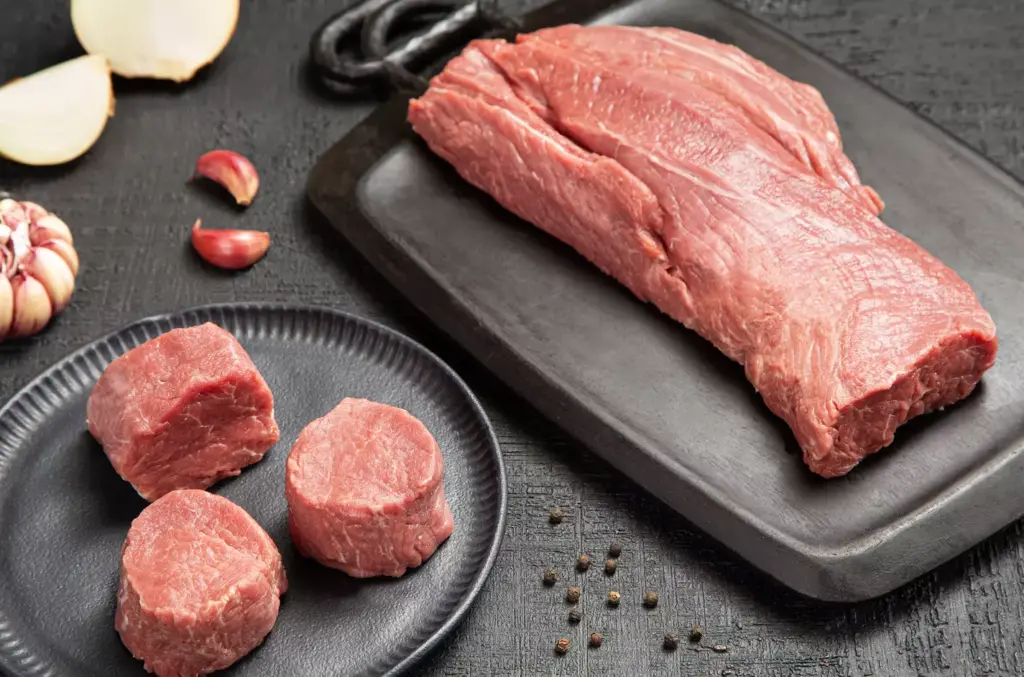The pursuit of health, autonomy, and well-being has intensified among older adults, who are projected to represent 37.8% of the Brazilian population by 2070, according to the Brazilian Institute of Geography and Statistics (IBGE). Furthermore, according to the institute, approximately 9 million Brazilians aged 60 or older engage in some form of physical activity. This new aging profile challenges old paradigms, such as the belief that red meat should be avoided by those seeking to protect their heart.
A literature review conducted by Adeca Agronegócios, a consulting group from the Luiz de Queiroz College of Agriculture (Esalq/USP) at the University of São Paulo, showed that lean meat, consumed in moderation, is not the primary culprit for increased cardiac risk in older adults. On the contrary, studies indicate that, in the right amount, it aids in cardiovascular protection. Moreover, it is an important ally against sarcopenia (progressive loss of muscle mass and strength associated with aging), osteoporosis (a disease that causes bone weakening), and anemia.
The document highlights the study by Stuart M. Phillips, published by Meat Science, which demonstrates that the problem lies in the excessive consumption of simple carbohydrates, found in ultra-processed foods, refined sugars, and white flours. These ingredients rapidly raise blood glucose levels and stimulate insulin production, which contributes to chronic inflammation and metabolic changes associated with the development of cardiovascular diseases.
Lean red meat offers essential nutrients for the heart

Researchers from the United States and Belgium reviewed evidence on the role of lean red meat at different life stages in an article published in the journal Frontiers in Nutrition. According to authors Melissa Kavanaugh, Diana Rodgers, Nancy Rodriguez, and Frédéric Leroy, when incorporated into balanced dietary patterns — such as the Mediterranean diet — it can be part of a nutritional strategy that supports parameters linked to cardiovascular health.
The study also emphasizes that, among older adults, lean red meat is one of the main sources of frequently under-consumed nutrients, such as high-biological-value proteins, heme iron, zinc, and vitamin B12 — all essential for the proper functioning of the heart, as well as the brain and muscles.

Photo: Tint Media/ Shutterstock
Further complementing this scenario, a study published in the American Journal of Clinical Nutrition showed that women over 60 years old who followed a high-protein diet, including lean red meat, and performed resistance exercises over four months, exhibited significant gains in muscle mass and reduced inflammation levels, without an increase in classic markers of cardiac risk. This type of inflammatory response, measured by a decrease in interleukin-6 (IL-6), is directly associated with the prevention of cardiovascular events in older adults.
Lean cuts are low in fat
The experts’ warning pertains to the type of cut chosen and the cooking method. The recommendation is to prioritize lean options and avoid excessive use of salt or frying. For older adults who wish to consume red meat without compromising heart health, choosing cuts with low saturated fat content is essential, as this helps maintain healthy cholesterol levels and reduce the risk of cardiovascular diseases. These alternatives offer the same essential nutrients found in red meat — such as heme iron, vitamin B12, and complete proteins — but with less impact on LDL cholesterol, known as “bad cholesterol.”
This combination represents a strategy for gaining autonomy, longevity, and well-being, and points to evidence-based practices. Maintaining health in old age does not depend on restrictive diets, but on consistent and balanced choices. The studies reinforce that the focus should be on balance and in combination with good lifestyle habits.




